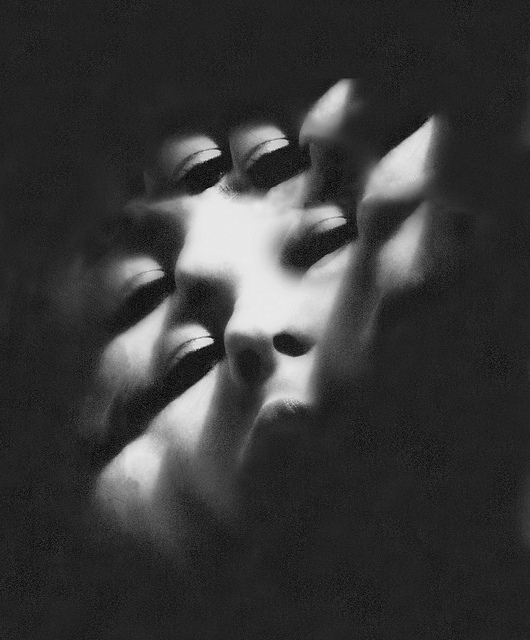James Blake rarely directly addresses his audience during performances. Beyond a few humble, soft-spoken expressions of gratitude, Blake reserves his powerfully seductive voice for his compositions, which in fairness, express more than spoken-word ever could. In his much anticipated return to Montreal this past Saturday at Metropolis, however, he took a brief moment, late in his set, to deliver an apology to the sellout crowd for the show’s postponement back in May. “I hope it was worth the wait”, he announced, before resuming his set. The emotionally engulfed crowd gave immediate applause. Not a soul could have felt cheated by the ride we were taken on.
The Blake-fronted three-man ensemble took stage for a little over ninety minutes, covering the most eminent pieces of his catalogue. Each piece was presented as a singular, highly developed soundscape, taking the audience on a rollercoaster of emotional and musical complexity. Every song is, in a way, its own story. A subtle, unthreatening beginning develops slowly, texture upon texture, until you find yourself catapulted into a dimension of emotion you never even knew existed. Time warps as the music and perfectly choreographed lighting reach a climax, when finally the tension releases and the music descends into profound nothingness. The music has stopped, but the quiet that follows induces a sentiment just as powerful as the sounds that preceded it. The sound of silence has never been so stunning. The result, a truly mathematical approach to live presentation.
Blake may be an electronic artist, but beyond the musical elements, nothing about his gig is characteristic of an electronic performance. Dancing is nearly nonexistent, limited to the occasional in-time body swings induced by the dubstep-influenced drops that emerge from pieces like the Feist cover ‘Limit to your Love’. Speaking is even less prevalent, as no one dares to disturb the melancholy ambience that dominates so much of the set. Thus, seeing James Blake turns out to be more like attending a symphony than a concert. But what’s most fascinating is that this stillness is not forced upon the crowd; no one – the band included – is enforcing this respectfulness. Rather, it seems that the crowd’s tranquility is a natural response to the sonic-textures being developed before them. The beauty of each composition literally demands churchlike reverence from the crowd; the power of this obedience itself seemingly becomes a component of the art. I’ve been privileged enough to experience a wide-array of musical performances, and I can certainly say that there’s nothing quite like this.
The first half of the performance featured some of Blake’s most famous songs, like the sinister Overgrown cut ‘Life Round Here’, and the uncharacteristically clubby sample frenzy that is ‘CMYK’. And while the presentation of these tracks deserves nothing less than appreciation, it was surely the latter half of the set that was most inspired. It began with an extended version of Lindisfarne – parts I and II – nearly identical to live takes he’s given in shows of the past. First enters Blake’s voice, deeply layered and heavily harmonized, reciting the song’s ambiguous yet meaningful lyrics. This continues for several minutes, as we sympathize with the song’s insufferable loss that seemingly no amount of time can alleviate, as he pleas “won’t tomorrow come?” with a sense of tragic defeat. A crushing pause ensues before the guitar enters, washing away the pain with arpeggios that create a truly cathartic atmosphere.
‘Limit To Your Love’ followed suit and was portrayed in a similar manner to that of the album version, until it expanded into an unfamiliar landscape that sounded like dubstep high on ketamine. The evolution that took place during its unraveling is really a testament to James Blake’s ability to elongate his aesthetic content without making it any less interesting. Overgrown’s lead single ‘Retrograde’ followed and came closest to turning the docile Metropolis atmosphere into a club; I was literally waiting for the crowd to cave in on the stage as the lights frantically convulsed, but that moment never came – he withdrew just in time, as if to reemphasize that that type of environment just ain’t him. ‘Retrograde’ served as the climax of the set, and he announced that the following song – ‘The Wilhelm Scream’ – would be his last. The song was his apparent farewell to the crowd, and upon its completion the typical symphony-like applause took on the direction of a stadium-like roar, as the band gave their regards and disappeared behind stage.
Within minutes, however, James Blake was back on stage, unaccompanied for this first time in the evening, to give an encore that left several people in my vicinity wallowing in tears. The song choice – ‘Measurements’ – took me as a surprise initially, but in hindsight, it served as the perfect comedown song to an emotionally charged performance. If you’ve heard the harmonic complexity of the album version, which mainly features a subtle bassline, several pauses of silence, and his voice heavily layered in different arrangements each time around, you’d be astonished by the precision through which he delivered it. As he walked off the stage for the final time, a layered recording of his voice continued echoing from the stage, a haunted moment that sent chills through my body. It was the highlight to an evening that left me with no doubt that James Blake is currently leading the vanguard of artists intent on permanently changing the way we think of music.
WRITTEN BY DYLAN MARRELLO
PHOTO FROM QM


